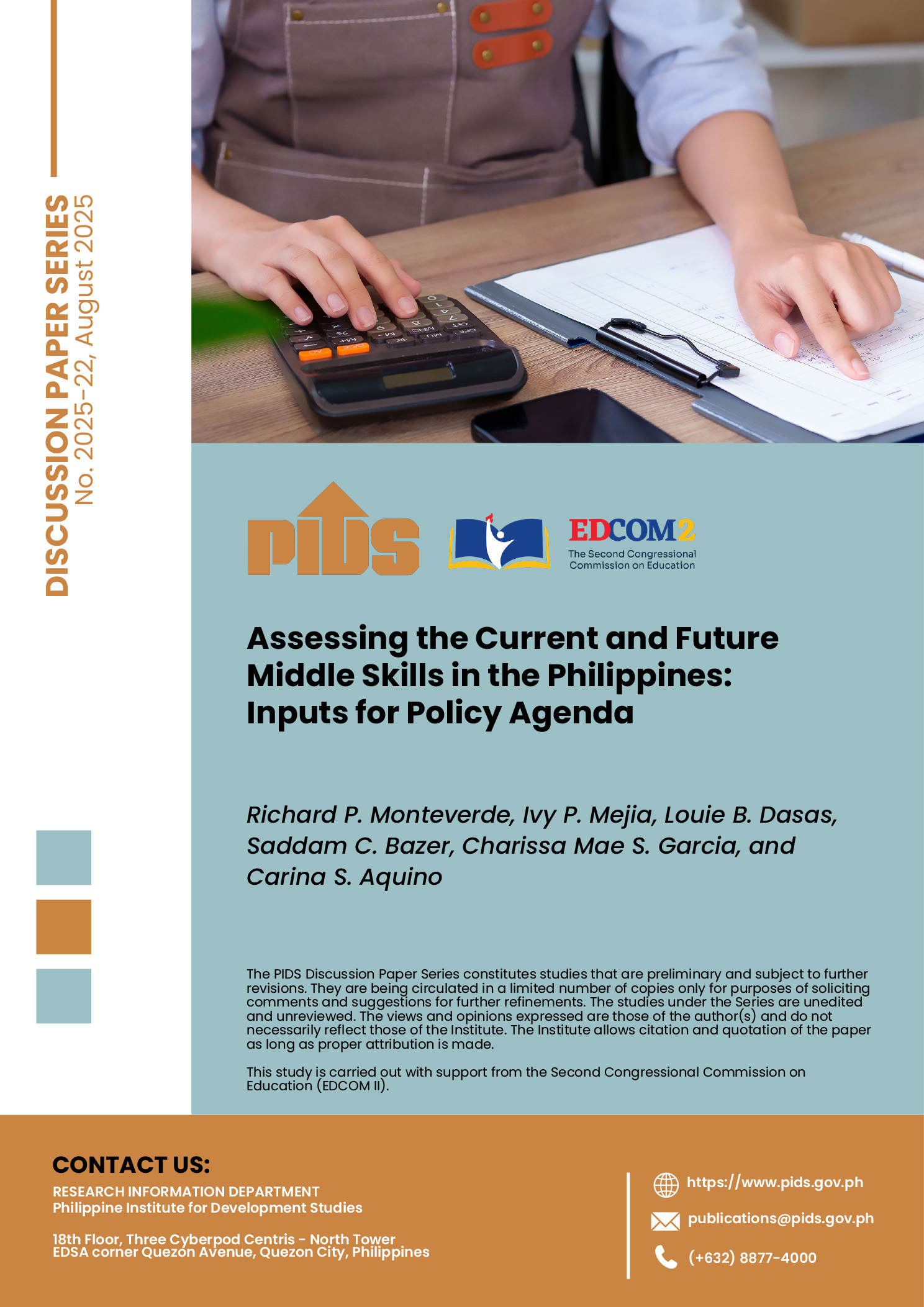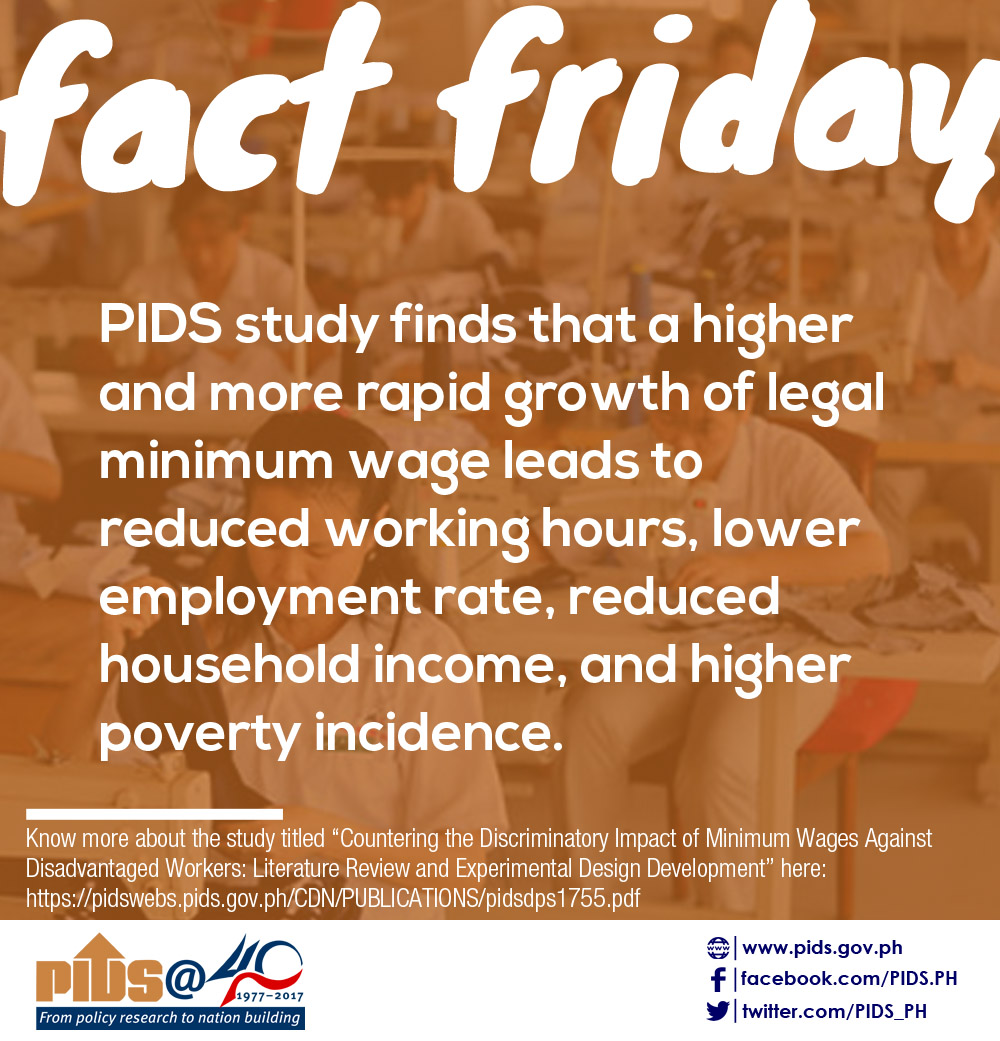Politicians are all too fond of using shotgun solutions to fix particular problems, even as these inflict so much collateral damage that negates whatever good they hope to achieve.
This is because apart from being so much easier, such solutions tend to be politically appealing, especially to the uninformed public. Unfortunately, that’s often what matters most to elective officials out to gain reelection votes every chance they can get.
Politics trumping good economics is the story of our ever-laggard economy.
The latest instance is the current move to legislate an across-the-board hike in the minimum daily wage by P100. Legislated wage setting is a stubbornly recurrent proposal that politicians in Congress have pushed periodically for over more than three decades since Republic Act No. 6727, or the Wage Rationalization Act, was enacted in 1989.
The law created the National Wages and Productivity Commission and Regional Tripartite Wages and Productivity Boards, and wisely mandated the latter to study and set wages at the regional level—thereby allowing wages to differ across regions to suit widely varying local conditions.
A recent Inquirer story quoted Senate President Juan Miguel Zubiri to have proudly declared that if the proposed law is enacted, it would be the first time (in the face of numerous past attempts) that a legislated pay hike would be implemented nationwide since RA 6727.
Perhaps he failed to consider that there was good reason why those past attempts never prospered, as our lawmakers always eventually dropped them.
To see the folly in a legislated across-the-board minimum wage hike, one only needs to take a closer look at our labor force statistics to see that a minimum wage increase will not help the bulk of our employed workers, and could even hurt.
Paris 2024 or LA 2028, Tim Cone wants Olympic stint for GilasParis 2024 or LA 2028, Tim Cone wants Olympic stint for Gilas
Zubiri glowingly portrayed the Senate measure as a “Valentine’s gift to all our workers,” perhaps not realizing that only a minority of our workers would actually benefit from it. Consider the following numbers: As of last December, just over half of all our employed workers (31.7 million, or 62.7 percent) are wage and salary workers.
The rest are either self-employed (14.9 million or 29.5 percent) or unpaid family workers (4 million or 7.8 percent), for whom a mandated wage hike won’t help, and could even hurt. Of the 14.9 million self-employed, 1.1 million are employers in a family-owned farm or business, for whom a substantial mandated wage hike could be devastating. In fact, the bulk (65 percent) of total jobs, or nearly 33 million, are in small and medium enterprises (SMEs) where labor costs tend to dominate, and many of which could be forced into closure by higher wage bills. That’s why the SME-dominated Philippine Chamber of Commerce and Industry vocally opposes the wage hike proposal.
Note that minimum wage earners comprise only a fraction of the 62.7 percent who are wage and salary workers. All told, minimum wage hikes do not help the bulk of employed workers. Add to that the 1.6 million reported to be jobless and 6 million who are underemployed, whose ranks would swell if wages were forced up.
Where is the wisdom in the measure, then, if it will actually not benefit most of our workers, and instead of helping, would throw more people out of work and into even deeper poverty? Ironically, it would be in poorer regions of the country, where wage boards have seen it fit to set lower wage rates, that job losses would be even worse because a nationwide across-the-board wage increase represents a proportionally larger cost increase there. And I haven’t even mentioned the new round of inflation that increased labor costs would induce.
Government think tank Philippine Institute for Development Studies has examined and analyzed statistical evidence on the impact of legislated wage hikes on employment, income, and poverty incidence. In a 2016 paper, Vicente Paqueo, Aniceto Orbeta, and Leonardo Lanzona concluded that in the Philippine setting, legislating higher minimum wages would unmistakably raise both unemployment and underemployment. Equally disturbing is that their statistical analysis found the negative employment effects to be more severe for the poor, the young and inexperienced, the less educated, and women. Granting that our politicians are not merely posturing to gain “pogi points” with voters, I pray that they would study the measure much more carefully, paying particular attention to the evidence on why legislating a substantial minimum wage hike is counterproductive—and why they should instead be looking for more rifle-focused solutions to the plight of our inflation-battered workers. In doing so, they should understand why similar past posturings to legislate minimum wage hikes never prospered. It never made sense then, and it doesn’t make sense now. Let the regional wage boards do their job.







